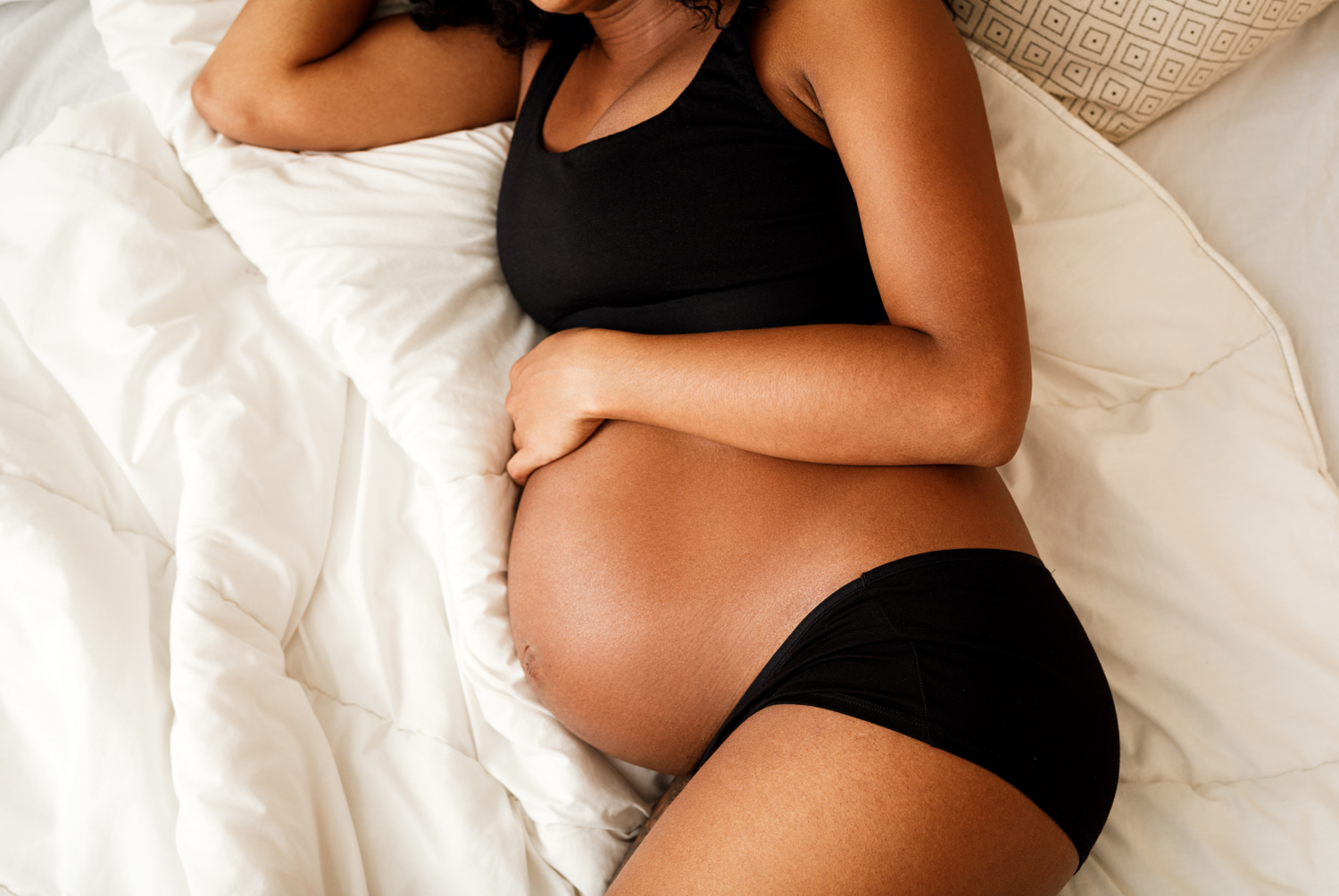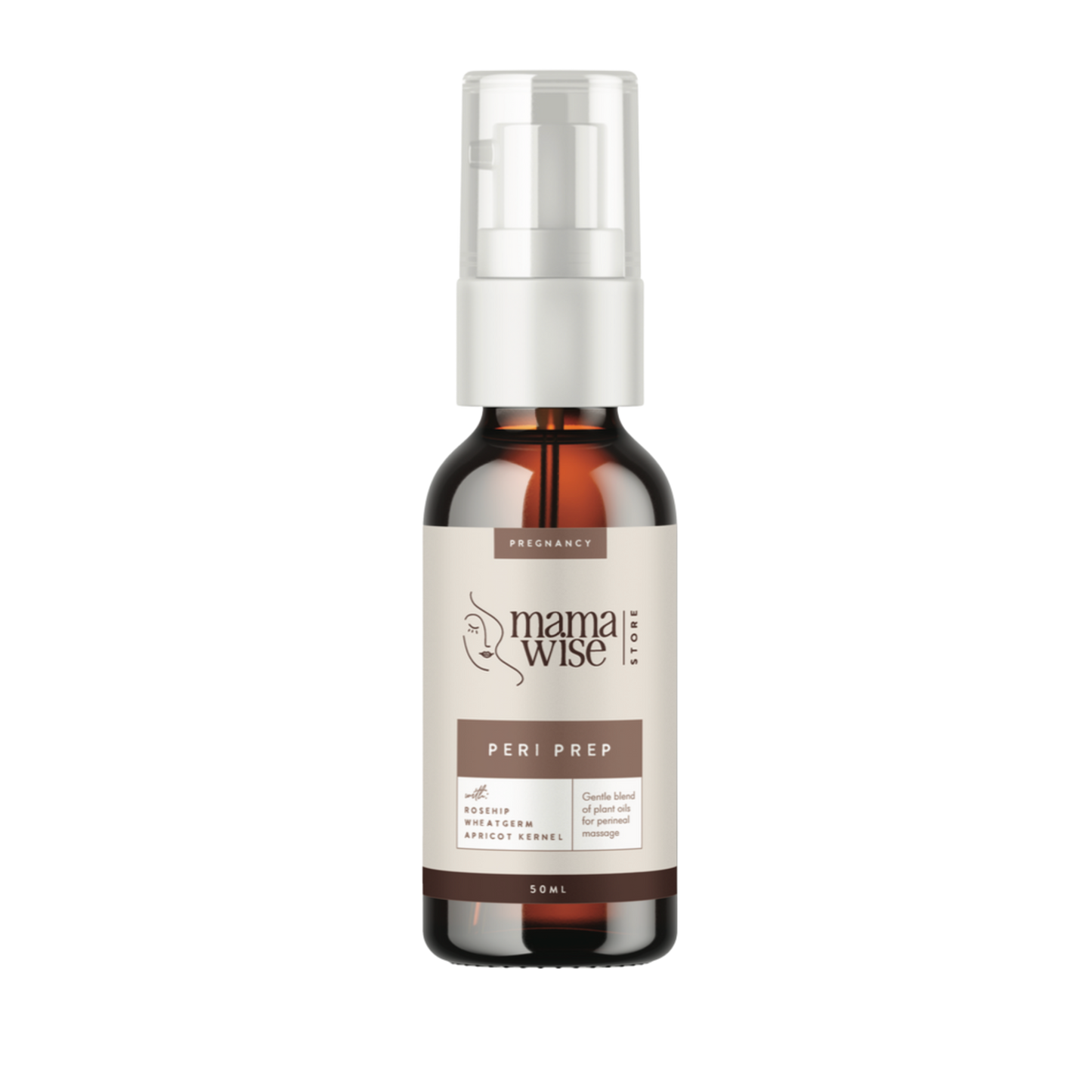Peri Prep
Couldn't load pickup availability
Why it's loved
Why it's loved
I'm a big believer in the body's ability to birth babies.
As a doula, I've attended births of 10 pounders that leave no trace. I've also seen mums of 7 pounders experience a 2nd degree tear.
There's no doubt there are many factors around birth that influence how your vagina and peri fares.Yet as a doula, I do see the value in perineal massage.
It's often thought of as just a stretching exercise, but it provides much more than that.
It can help women learn how to yield to sensations of stretch, pressure and discomfort.
It's an opportunity to experience releasing and relaxing around these sensations.
Plus I've noticed perineal massage helps build birthing confidence. And you can't have enough of that, surely?
What is it?
What is it?
Peri Prep is a gentle and nourishing blend of pure, natural (and nut-free) plant oils.
It helps to condition the skin and support elasticity in preparation for birth.
It's designed for use with perineal massage from 34 weeks of pregnancy.
As this blend has been specially formulated for the delicate area of the perineum/vaginal opening, it's contains no essential oils.
Step by step instructions included.
50ml bottle with pump lid.
Shelf life: 6-9 months
What's in it & why?
What's in it & why?
Ingredients: Organic Prunus armeniaca (Apricot) Kernel Oil, Organic Rosa canina (Rosehip) Fruit Oil, Organic Triticum vulgare (Wheat) Germ Oil, Helianthus annuus (Sunflower) Seed Oil, Mixed Tocopherol 50% (Natural Vitamin E)
Why?
APRICOT KERNEL OIL: This cold-pressed oil from apricot kernels has a thin and smooth texture and is quickly absorbed by the skin. It's moisturising, emollient, and rich in essential fatty acids and vitamin A.
ROSEHIP OIL: This cold-pressed oil is high in vitamins A and C, lycopene and antioxidants. It's great for encouraging healing and regeneration. It also promotes collagen and elastin levels.
WHEATGERM OIL: This oil is cold-pressed from the wheatgerm, without the use of chemical solvents. It's rich in vitamins A and D and has naturally occurring antioxidants including vitamin E and betacarotene. It's nourishing and soothing to the skin.
SUNFLOWER SEED OIL: This oil has high amounts of Vitamins A, D and E, plus lecithin and unsaturated fatty acids. It's easily absorbed by the skin leaving very little residue.
VITAMIN E OIL: This natural antioxidant helps with skin repair, collagen production and provides deep moisturising to the skin.
How to use
How to use
Step by step instructions for perineal massage are included.
You can do this by yourself or have your partner join the peri-prep party.
This oil may also be used to nourish the skin of your blooming belly during pregnancy.
Also keep for postpartum, to support your belly skin as it retracts over the early weeks.
Pair with
Pair with
Pack the Peri Spray in your hospital/birth bag for ready-to-go, immediate postnatal relief.
Prep your postpartum padsicles with the Padsicle Gel and store in freezer.
Compliment your recovery with the pre-packed, multi use Peri Herb Bags.
Take the sting out of toilet visits with the upside down Peri Bottle.
Key features
Key features
Formulated by a Naturopath and Doula
Pregnancy safe from 34 weeks
Cruelty-free
Made with natural plant oils
Free from nut oils and mineral oils
Free from essentials oils
Free from parabens, petrochemicals, synthetics
Handcrafted in small batch production
Recyclable (packaging)
Expiry: 12 months after opening
Research
Research
It's been shown that prenatal perineal massage reduces the likelihood of perineal trauma (mainly episiotomies) and the reporting of ongoing perineal pain, and is generally well accepted by women.
A recent review concluded "antenatal perineal massage is associated with a lower risk of severe perineal trauma and postpartum complications."
Women had significantly lower incidence of episiotomies and perineal tears. There was also better wound healing and less perineal pain in the antenatal perineal massage group. It also reduced the second stage of labour, with significant improvement in Apgar scores at 1 and 5 min.
What does the research show?
Perineal massage undertaken from 34/35 weeks of pregnancy, "reduces the incidence of perineal trauma requiring suturing (mainly episiotomies) and women are less likely to report perineal pain at three months postpartum."
Yes, please.

Build your birth confidence
Learn how to relax and release around the sensations of perineal massage.
Step by step instructions included.



